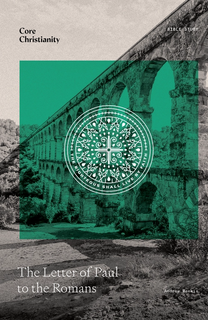This article is part of our new series,“Cloud of Witnesses: Stories from the Church.” Read more from the series here.
Through the old wooden door, straight to the back of the room, I would settle into my favorite seat. I was always on time for my Roman History class. The room was pleasantly warm and—so we could see the PowerPoint projected on the screen—dark. Up front, my professor would begin to lecture in his deep, monotone voice. With a feeling of utmost contentment, I’d relax my body and… take a nap!
Does this capture your experience studying history? It starts at a young age. For the past two years, I taught World History to juniors in high school. My students come into my classroom with stereotypical preconceptions and gripes about history: “History is boring and I don’t like it!”; “History is a bunch of irrelevant facts about dead people. Why does this matter for my life?”; and, “Will I ever need to know this in the real world?” These thoughts and questions may mirror your own. But I’d like to offer a response. I want to defend studying history in general, but more specifically, I will argue that Christians in particular should be interested and invested in the history of the church.
Christians Should be Interested in History (Especially Church History)
Following standard operating procedure, I begin my history classes by asking, “Why should we study history?” By far, the most common answer I hear from students is some version of the famous aphorism, “Those who don’t study history are doomed to repeat it.” This is certainly true. If we don’t know the mistakes and successes of the past, we can’t learn from them. The appropriate application of historical knowledge to present-day situations is the exercise of wisdom. It’s a good, practical argument.
But the study of history also has intrinsic value; it’s worthwhile in and of itself. Why? Well, simply put, history retells the stories of God’s image-bearers. These stories aren’t simply valuable because they enable us to achieve some good or allow us to avoid some evil. The stories of history are worth knowing—even if we can’t immediately demonstrate their practicality—because they are told by people about people. History demonstrates realities about human nature and about who God is and how he relates to and rules over humanity. This information is priceless. Knowing history allows us to enter more deeply into an understanding of ourselves and God.
Furthermore, for Christians, church history is family history. The apostle Paul describes all Christians as, “members of the household of God” (Eph. 2:19). Think of how important the history of your family is to you. Your family shapes and molds your opportunities, beliefs, personality, and sense of identity. Many people aren’t history buffs, but they want to learn about their family tree. They will send a saliva sample to a lab so they can learn more about their ancestry. This is the sort of interest we should have in our spiritual family—our brothers and sisters in Christ who lived before us. The history of the church is full of good and evil events, characters who are heroes, villains, insiders, and outcasts. And of course, there are a few “crazy uncles” that make us cringe. With all its mess and beauty, the history of the church is shared by all followers of Christ, and as we recall it, we can know and delight in the present over what God has done in the past.
Christians Should be Enthralled by Church History
Church history is captivating because it is the final chapter in the history of redemption. We live in the era between Christ’s first and second coming. Christ first came in humility to suffer and die for our salvation. When he returns in glory, he will judge the people of the world and usher in the new heavens and new earth. In between, Jesus sent the Holy Spirit to gather people into the church. This is the era of church history, and it’s enthralling! It’s a time for the gospel to go forth so that more and more people can repent of their sins and believe in Christ for salvation. Study this history to learn about and delight in what God has done to bring people of all nations, tribes, and tongues to himself.
Christians Should be Invigorated by Church History
As we delight in what God has done, we’ll be invigorated in our faith as we see that God is true to his promises and faithful to his people. This not only gives us perspective on our current moment; it also encourages us as we look toward an unknowable future. The church may struggle and suffer, but it will not be vanquished. Looking to Christian men and women of the past who have taken up their cross and followed Christ through life—and even unto death—can give us strength to persevere. This is the “great cloud of witnesses”—witnesses to God’s unfailing power and goodness (see Heb. 11–12). Fellow believers, we stand on the shoulders of giants. Let us not forget them. They are our family. Their story is our story. We are carrying on that story today.
A Final Note
Over the next few months, I’ll be writing articles about a wide variety of notable men and women from church history. If you have read this far, perhaps I have convinced you that these articles will be worth reading. I hope they will be entertaining. I pray God will use them to increase your interest in church history. But more than that, I pray that God will use these stories to enthrall us with his wisdom, deepen our trust in his sovereign rule over all space and time, and invigorate our worship.






